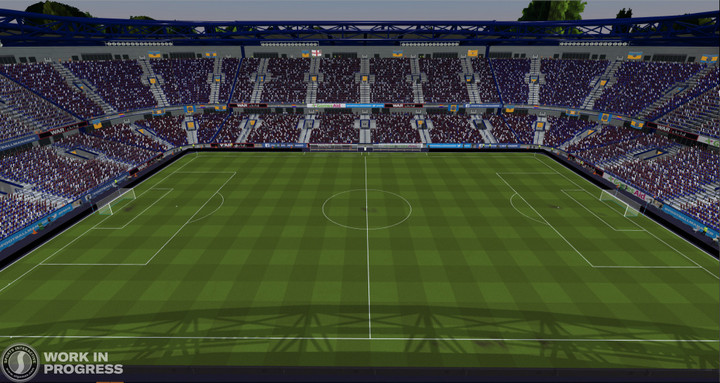The game has picked up a cult following in recent years, with budding football managers looking to take their favourite clubs to glory or see League Two teams winning the Premier League. It's also been rumoured to help managers make decisions in real football, but what effect that has remains to be seen.
What we do know, though, is that FM2020 will have a whole host of new features to make the game more realistic and more fun than ever before. Here's what we've got:
Graphic Enhancements

Kicking it off with one of the more basic (see: boring) upgrades, the FM team have looked to make human models much more lifelike with a realistic anatomy and bone structure.
Pitches have also seen graphical improvements, with weather having a noticeable difference in how the pitch looks during matches, water and mud particles flying off the pitch and slide tackles leaving a trail behind them. There will also be improved lighting, particularly around the level of shading and exterior lighting during the match.
Not exactly why I play Football Manager, but it's still good to see the team making these things better.
Playing Time Pathway

"Football Manager 2020 has redefined and reenvisioned player development, an aspect of the game that is high on the priority list of every player. Becoming a manager gives you the chance to carefully control over how you bring through talent while overseeing the progress of your important players too."
In FM2020, players are being given more freedom with the ability to plan long-term and set individual pathways for all players at any level. This means a more refined path for young players becoming a Star Players and senior players immediately establishing Important or Star Player status as soon as they join a club.
As such, you can include more details in player contracts based around their playing time, and this is particularly true for goalkeepers who have their own tailored Playing Times. Keepers can be Star Players, First Choice Goalkeepers or Cup Goalkeepers, amongst many other options.
The overall plan is for users to be able to track their entire squad's development, meaning you have more sense over the right moves to make, the transfers to get done and the players to prioritise season in, season out.
At the end of each season, you'll get an update from your backroom staff on how players are progressing ahead of the new campaign. Perfect for planning.
Club Vision

Meeting board expectations has always been important, but FM has refined this feature for FM20 by introducing Club Vision. Now, the board don’t just lay out their expectations for the season ahead but plot a course for the club to progress to in seasons to come. It’s your job to strengthen the club’s identity and meet the milestones set out by the board as part of their long-term planning.
Club Vision is split into three strands: club culture, ongoing objectives and your club’s five year plan. Club culture objectives can include set targets around the club’s transfer policy as well as the style of football the board expects you to play. Five-year-plan objectives are set season-by-season, showing the pathway to achieving a higher status for your club. Finally, ongoing objectives are tasks that you will be expected to stick to during your tenure as manager. These objectives are engrained into the identity of the club so, for example, if your club has a long-standing tradition of bringing players through the youth system then it will be up to you, as manager, to maintain that.
Development Centre

The Development Centre is an all-encompassing hub, which you can use to track the progress of your players. It sits on the sidebar in place of the sections that previously existed for your youth, reserve and development squads. This brings together all areas of the game related to development to make it easier for both hands-on and hands-off managers to nurture next-gen talent. You’ll be given all the tools and information you need in one place, giving you the best chance of reaping the rewards of developing players.
Backroom staff will provide recommendations and advice on your youth team and noteworthy talents, assessments of the strength of your youth teams and keep track of players in and out on loan with the club, meaning you have all the information and data needed to make informed decisions around youth development within Football Manager.
Much like the training improvements introduced in FM19, the Development Centre allows you to fully immerse yourself in your team’s youth development or, if you’d prefer, to take a completely hands-off approach and delegate everything to your backroom team.
Backroom Improvements

"Something that we hear from football clubs is the idea of collaboration ahead of matchdays, particularly with selecting the matchday squad. In FM20 we’ve implemented this in the form of brand-new team selection advice."
As part of your pre-match news flow, you’ll receive an inbox message informing you of your backroom team’s advice on who you should pick in your matchday squad. From here, you can choose whether to accept any of the staff's recommendations.
Finally, they've introduced a few new roles to the backroom staff, including Technical Director and Head of Player Development. These have been included to make the manager's job easier and decisions more well-informed, the backroom team has been bolstered to be bigger and more helpful than ever before.
For more in-depth information on each feature, visit the official Football Manager website.

 No ads, our video library,
No ads, our video library,

